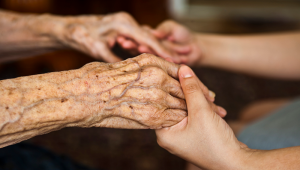By Jaimie Kaffash
5 February 2010
Up to 600 people a year are dying in England because of inefficient management of trauma care, according to the National Audit Office.
An auditors’ report released today claims that care for patients suffering from major trauma – incidents where there is a strong chance of death or disability – has not improved in the past 20 years, ‘despite repeated reports identifying poor practice’.
It also says that there is ‘unacceptable variation’ in care across the country. In some areas, there are five unexpected survivors per 100 patients, compared with areas in which there are eight unexpected deaths.
Overall, there are around 450–600 deaths a year that can be prevented, Major trauma care in England estimates. It adds that there is little co-ordination in the provision of care, which leads to delays in diagnosis and treatment.
The NAO says that it is ‘not feasible, nor efficient’ to expect every hospital to provide 24-hour specialist care. But it recommends: greater co-ordination of care through existing trauma care networks; the nationwide establishment of regional trauma centres, as recommended in Lord Darzi’s 2008 Review; the introduction of development of care standards and protocols; and the more efficient gathering of data.
Auditor general Amyas Morse said: ‘Current services for people who suffer major trauma are not good enough. There is unacceptable variation, which means that [in many areas], if you are unlucky enough to have an accident at night or at the weekend, you are likely to receive worse quality of care and are more likely to die.
‘The Department of Health and the NHS must get a grip on co-ordinating services through trauma networks, on costs and on information on major trauma care, if they are to prevent unnecessary deaths.’
Doctors’ organisations welcomed the report. Richard Collins, vice-president of the Royal College of Surgeons, said: ‘There is indisputable evidence that the introduction of regional trauma centres would save thousands of lives every year. However, very little progress has been made.’
A spokesman for the British Medical Association echoed the report’s recommendations for greater co-ordination through trauma networks and called for the ‘better provision of diagnostic and critical care facilities’. He added: ‘These all require resource investment to allow consultants to do what they do best – provide a high quality service to patients.’
5 February 2010
Up to 600 people a year are dying in England because of inefficient management of trauma care, according to the National Audit Office.
An auditors’ report released today claims that care for patients suffering from major trauma – incidents where there is a strong chance of death or disability – has not improved in the past 20 years, ‘despite repeated reports identifying poor practice’.
It also says that there is ‘unacceptable variation’ in care across the country. In some areas, there are five unexpected survivors per 100 patients, compared with areas in which there are eight unexpected deaths.
Overall, there are around 450–600 deaths a year that can be prevented, Major trauma care in England estimates. It adds that there is little co-ordination in the provision of care, which leads to delays in diagnosis and treatment.
The NAO says that it is ‘not feasible, nor efficient’ to expect every hospital to provide 24-hour specialist care. But it recommends: greater co-ordination of care through existing trauma care networks; the nationwide establishment of regional trauma centres, as recommended in Lord Darzi’s 2008 Review; the introduction of development of care standards and protocols; and the more efficient gathering of data.
Auditor general Amyas Morse said: ‘Current services for people who suffer major trauma are not good enough. There is unacceptable variation, which means that [in many areas], if you are unlucky enough to have an accident at night or at the weekend, you are likely to receive worse quality of care and are more likely to die.
‘The Department of Health and the NHS must get a grip on co-ordinating services through trauma networks, on costs and on information on major trauma care, if they are to prevent unnecessary deaths.’
Doctors’ organisations welcomed the report. Richard Collins, vice-president of the Royal College of Surgeons, said: ‘There is indisputable evidence that the introduction of regional trauma centres would save thousands of lives every year. However, very little progress has been made.’
A spokesman for the British Medical Association echoed the report’s recommendations for greater co-ordination through trauma networks and called for the ‘better provision of diagnostic and critical care facilities’. He added: ‘These all require resource investment to allow consultants to do what they do best – provide a high quality service to patients.’


















